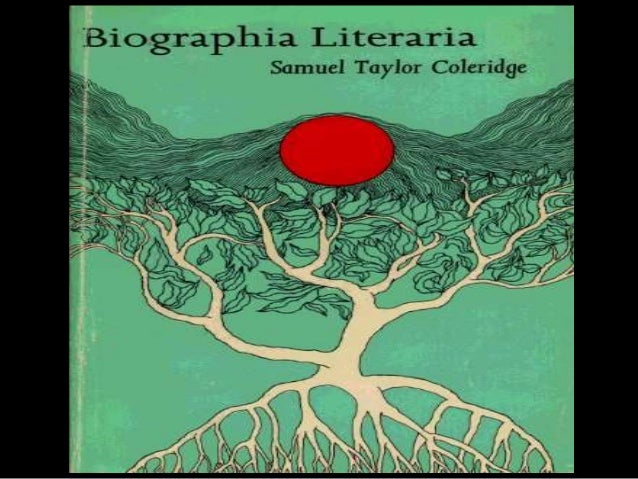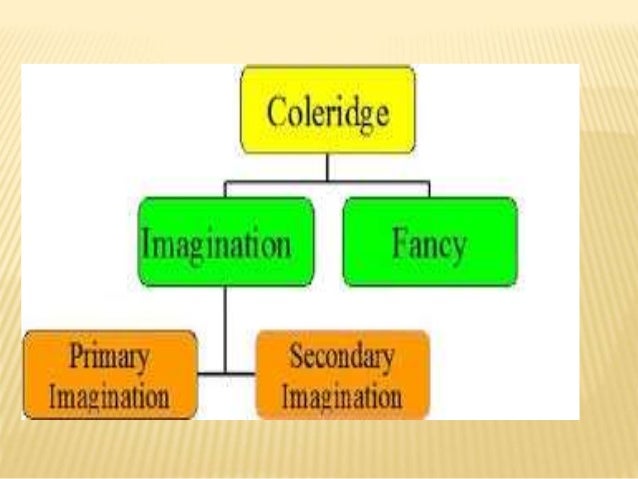Name:
Sonal Baraiya.
Roll
No.: 34.
Sub: Paper. No-3-Literary Theory & Criticism
Topic: Biographia Literaria Ch.14: Coleridge


Samuel
Taylor Coleridge was born on 1772 in Devonshire, and was the youngest of the
thirteen children of the Vicar of Ottery St Mary. As a child he was unusually
precocious:
‘‘I never thought as a child,’’
he
says,
‘‘never had the language of a child,’’
that
are we see in his ‘‘Biographia Literaria.’’ In
the 1817, when he had shaken himself free from opium, he published –
‘‘Biographia
Literaria,’’ and
Sibylline
Leaves.’’
Biographia Literaria is his most valuable
prose work. It pretends to record his literary upbringing. Biographia Literaria
in establishing Coleridge as the greatest of English critics. Coleridge’s
critical work is contained in 24 chapters of Biographia Literaria (1815 – 17).
In this critical disquisition, Coleridge concerns himself not only with the
practice of criticize but also, with its theory.
When we see his practical approach to criticism, Coleridge the poet but
whereas in theoretical discussion, Coleridge the philosopher came to the center
stage. In philosophical terms, Coleridge’s view on nature and function of poetry
is discussed. The poet within Coleridge discusses the difference between poetry
and prose, and the immediate function of poetry whereas the philosopher
discusses the difference between poetry and poem. S. T. Coleridge was the first
English writer to insist that every work of art is, by its very nature, an
organic whole.
Here S. T. Coleridge discussed –
Two cardinal points of poetry:


Coleridge
begins this chapter with his views on two cardinal points of poetry. To him
these cardinal points are –
(1) The power of exciting the sympathy of the
reader by a faithful adherence to the truth of nature, and
(2) The power of giving the interest of novelty by
modifying with the colours of imagination.
According to
him, it was decided that Wordsworth would write poetry dealing with the theme
of first cardinal points and the other was to be dealt by him. For the first
type of poetry, the treatment and subject matter should be, to quote Coleridge,
‘‘The sudden charm, which accidents of light and shade, which moon –
light or sun – set diffused over a known and familiar landscape, appeared to
represent the practicability of combining both. These are the poetry of
Nature.’’
In such poems,
subjects were to be chosen from ordinary life and through this poet express his
or her point of view very clearly.
In the second
type of poetry, the incidents and agents were to be supernatural. In this sort
of poetry to quote Coleridge,
‘‘the excellence aimed at was to consist in the interesting of the
affections by the dramatic truth of such emotions as would naturally accompany
such situation, supposing them real. And real in this sense they have been to
every human being who, from whatever source of delusion, has at anytime
believed himself under supernatural agency.’’
Thus with the
help of imagination the natural will be
dealt supernaturally by the poet and the reader will comprehend it with –
willing suspension of disbelief.’’
The Lyrical
Ballads consists of poems dealing with these two cardinal points, wherein the
endeavour of Coleridge was to deal with – ‘‘persons and characters
supernatural,’’ and that of Wordsworth –
‘‘was to give the charm of
novelty to things of every day, by awakening the mind’s attention from
the lethargy of custom, and directing in to the loveliness and the wonders of
the world before us.’’
Coleridge’s
views towards Wordsworth’s poetic creed.
In defense of Wordsworth’s poetic
creed: Coleridge, even though he did not agree with Wordsworth’s views on
poetic diction, vindicated his poetic creed in chapter 14 of Biographia
Literaria. Coleridge writes in defense to the violent assailant to the
‘‘Language of real life’’ adopted by Wordsworth in the Lyrical Ballads. There
had been strong criticism against Wordsworth’s views expressed in preface also.
Coleridge writes in his defense:
‘‘Had Mr. Wordsworth’s
poems been the silly, the childish things, which they were for a long time
described as being; had they been really distinguished from the compositions of
other poets merely by meanness of language and inanity of thought; had they
indeed contained nothing more than what is found in the parodies and pretended
imitations of them; they must have sunk at once, a dead weight, into the slough
of oblivion, and have dragged the preface along with them.’’
He
wrote that the ‘eddy of criticism’ which whirled around these poems and preface
would have dragged them in oblivion. But it has not happened. Instead, to quote
Coleridge,
‘‘Year after year increased the number of Mr.Wordsworth’s admirers. They
were found too not in the lower classes of the reading public, but chiefly
among young men of strong ability and meditative minds; and their admiration
was distinguished by its intensity, I might almost say, by its religious fervor.’’
Thus, Coleridge gives full
credit to the genius of Wordsworth.
Hence,
we may say that, Coleridge is frank
enough to point out that some of the views of Wordsworth were wrong in
principle and contradictory, not only in parts of the preface but also in the
practice of the poet himself in many of his poems.
Difference between prose and poem – The
poem contains the same elements as a prose composition. But the difference is
between the combination of those
elements and objects aimed at in both the composition.
POEM
– composition in verse.
PROSE
– Universal writing.
·
The difference of the object will be the difference of the
combination.
·
The object of the poet may simply be to facilitate the memory
to recollect certain facts.
·
He would make use of certain artificial arrangement of words
with the help of metre.
·
As a result composition will be a poem.
·
Because it is distinguished from composition in prose by metre,
or by rhyme.
·
One might attribute the name of a poem to the well-known
enumeration of the days in the several months; Thirty days hath September,
April, June, and November,&c.
·
Thus, to Coleridge, mere super addition of meter or rhyme
does not make a poem.
·
In scientific and historical composition, the immediate
purpose is to convey the truth.
·
In the prose works of other kinds, to give pleasure is the
immediate purpose and the ultimate end may be to give truth.
·
Thus, the communication of pleasure may be the immediate
object of a work not metrically composed.
Now
the question is – would then the mere super addition of metre, with or without
rhyme, entitle these to the name of poems? – Then Coleridge gave answered that
–
‘‘Metre should not be added to provide
merely a superficial decorative charm. Nothing can permanently please, which
does not contain in itself the reason why it is so, and not otherwise. If metre
is super added, all other, parts must be made constant with it. They all must harmonize with each other.’’
Thus, according to
Coleridge, the poem is distinguished form prose compositions by its immediate
object. The immediate object of prose is to give truth and that of poem is to
please. He again distinguishes those prose compositions from poem whose object
is similar to poem i.e. to please. He calls this poem a legitimate poem and
defines it as,
‘‘it must be one, the parts of which mutually support and explain each
other; all in their proportion harmonizing with, and supporting the purpose and
known influence of metrical arrangement.’’
·
According to Coleridge – the journey of reading poem should
be pleasurable.
·
Poem has its own distinctive pleasure.
·
Pleasure arising from the parts.
·
This pleasure of the parts supports and increases the
pleasure of the whole.
The
difference between poem and poetry –
In that
Coleridge quote that poetry is so nearly with the poem. The one is involved in
the solution of the other for it is a – ‘‘distinction resulting from the poetic
genius itself, which sustains and modifies the images, thoughts, and emotions
of the poet’s own mind.’’
John Shaw cross – writes ‘‘this distinction between
‘poetry’ and ‘poem’ is not clear, and instead of defining poetry he proceeds to
describe a poet, and from the poet he characteristics of the imagination.’’
·
‘Poetry’ for Coleridge is an activity of the poet’s mind.
·
A poem is merely one of the forms of its expression.
·
A verbal expression of that activity.
·
Poetic activity is basically an activity of the imagination.
David
Daiches – writes ‘poetry’ for Coleridge is a wider category than a ‘poem’; that
is, poetry is a kind of activity which can be engaged in by painters or
philosophers or scientists and is not confined to those who employ metrical
language, or even to those who employ language of any kind. Poetry, in this larger sense, brings, ‘
the whole soul of man; into activity, with each faculty playing its proper part
according to its ‘relative worth and dignity’.
This takes place
whenever the synthesizing, the integrating, powers of the secondary imagination
are at work bringing all aspects of a subject into a complex unity, then poetry
in this larger sense results.
·
Virtue of Coleridge’s imagination, which is a synthetic and
magical power.
·
He harmonize and blends together various elements.
·
Thus diffuses a tone and spirit of unity over the whole.
·
It manifests itself most clearly in the balance or
reconciliation of opposite or discordant qualities – Such as:
(A)of sameness, with
difference,
(B) of the general, with the
concrete,
(C) the idea, with the image,
(D) the individual, with the representative,
(E) the sense of novelty and freshness, with
old and familiar objects,
(F) a more than usual state of emotion, with
more than usual order,
(G) judgment with enthusiasm.
And
while this imagination blends and harmonizes the natural and the artificial, it
subordinates to nature, the manner to the matter, and our admiration of the
poet to our sympathy with the poetry. Doubtless, as Sir John Davies – observes
of the soul – ‘‘Doubtless this could not be, but that she turns…
Finally, Good sense is the Body of poetic
genius, fancy its Drapery, Motion its Life, and Imagination the soul that is
everywhere, and in each; and forms all into one graceful and intelligent whole.
Thus,
Coleridge is the first English critic who based his literary criticism on philosophical
principles. He interested in the creative process that made it.
No comments:
Post a Comment